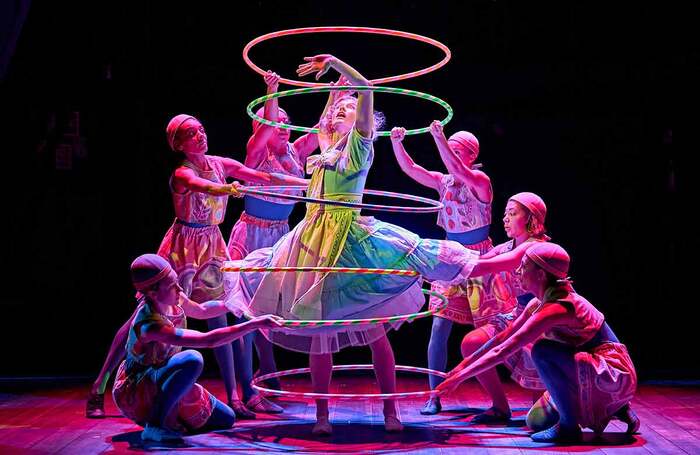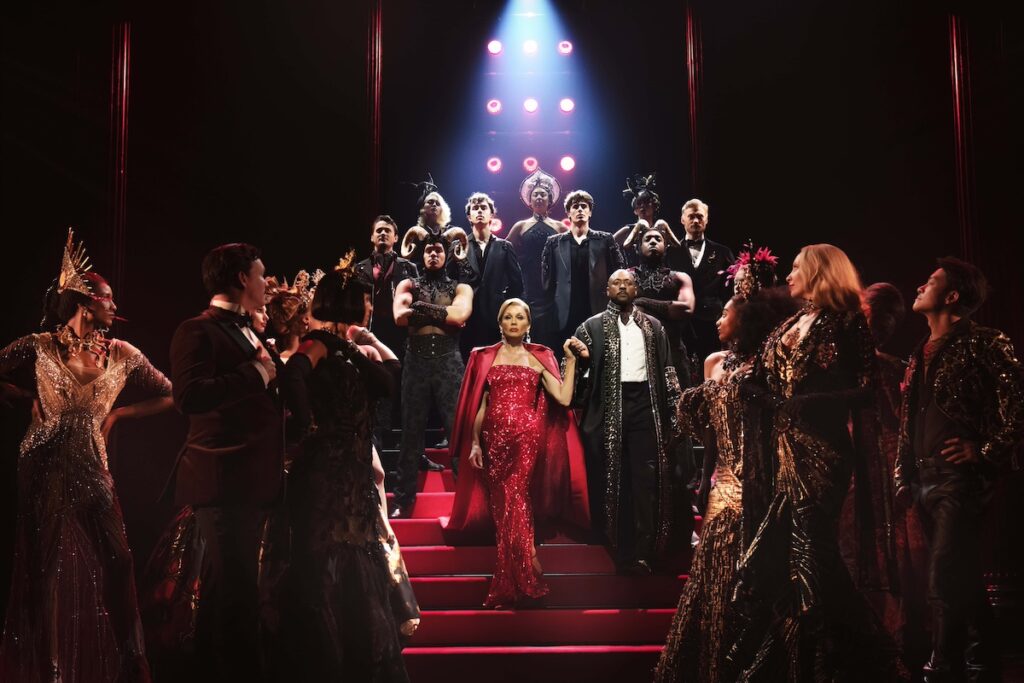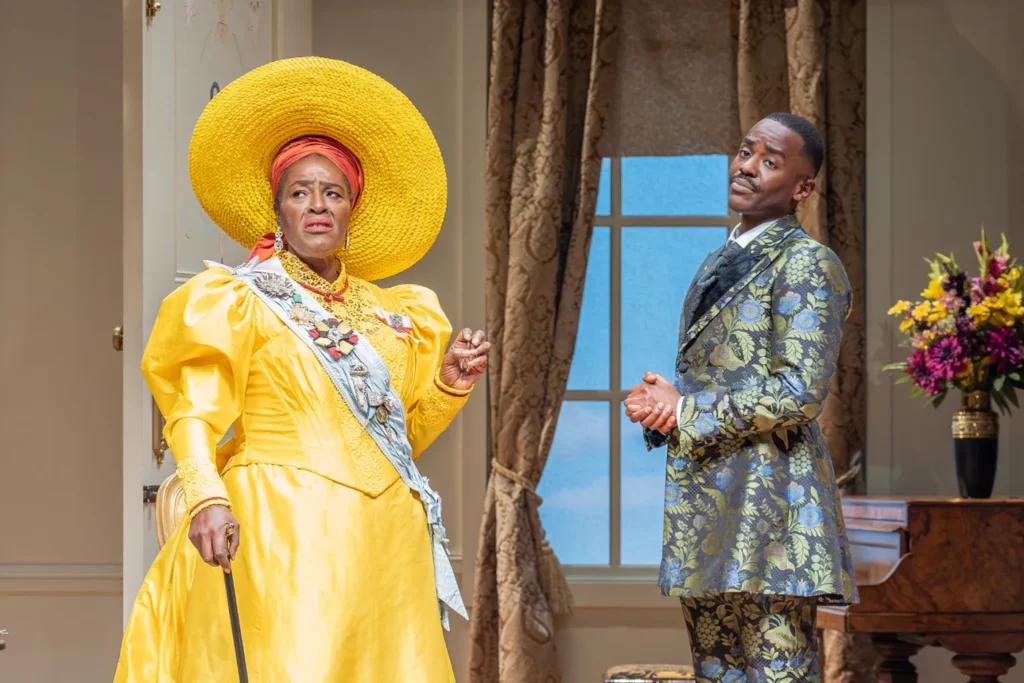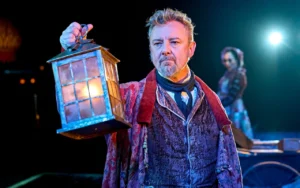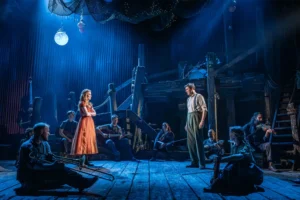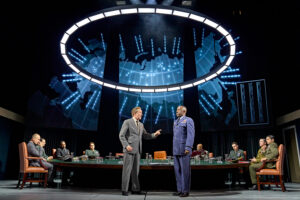Turning a ‘flop’ into a hit
menier chocolate factory
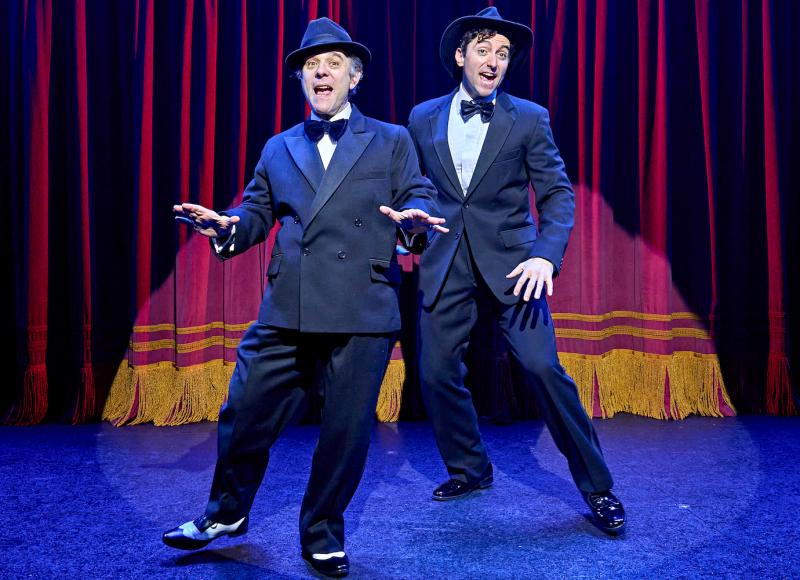
It’s been a while since Mel Brooks‘ one-time megahit musical has been seen in London. There was much surprise that such a spectacular show should be produced at the small Menier Theatre. Nevertheless, the critics were universally impressed by the witty, faithful direction of Patrick Marber, the stage-filling choreography by Lorin Latarro, and the all-round excellence of the cast. Some managed to praise the two stars Andy Nyman and Marc Antolin while also saying they weren’t as good as the originals but most thought they brought a great chemistry to the roles of two producers trying to put on a loss-making show in order to keep their investors’ money. The most famous song Springtime For Hitler seems to have lost little of its hilariously funny bad taste. No reviewer gave it less than 4 stars, the main reservation seeming to be that it’s a little dated.
[Links to full reviews are included but a number are behind paywalls and therefore may not be accessible]
Aliya Al-Hassan in BroadwayWorld (5) gave top marks: ’It’s far from subtle, but is funny, irreverant and witty.’ She praised the stars: ‘Nyman revels in his lank-haired, slightly chaotic persona. He has a palpable chemistry with Marc Antolin‘s adorably coy and neurotic Bloom.’ And the creative team: ‘Patrick Marber shows astute direction in his first musical. Lorin Latarro’s vibrant choreography defies the constrictions of the space, never seeming to be over-crowded or too busy.’
Helen Hawkins on The Arts Desk (5) called it ‘an uproarious adult panto.’ She said, ‘Andy Nyman is the dynamo of the show, a convincing wheeler-dealer…His Leo Bloom, Marc Antolin, is spot on too, nervous and silly, but equally amiable’
The Guardian’s Arifa Akbar (4) said, ‘Still so original, and delightfully – daringly – funny, it is revived by director Patrick Marber with such vigour, sparkle and controlled wildness that it renders itself the London show of the festival season – funnier, camper and more outre than pantomime.’ She found it ‘irresistible, absurd and joyful, both celebrating and sending up the power of theatre. A blast of a show.’
WhatsOnStage’s Sarah Crompton (4) declared, ‘It’s not at all subtle, but speeds along with such pleasure at its own absurdity that it’s hugely entertaining.’ She said, ‘Nyman and Antolin anchor the show while everyone else goes so far over the top that the roof is in danger of coming off. Both Harry Morrison as the Nazi-loving author of the show and Trevor Ashley as the fabulously gay director Roger de Bris are unleashed into wild excess’.
Matthew Hemley for The Stage (4) pointed out, ‘this is a musical that still guarantees laugh after laugh after laugh, with a genuinely brilliant score from Brooks.’ He continued, ‘Marber keeps the show whizzing along, and Lorin Latarro’s slick choreography makes brilliant use of a tight space’. He described the stars: ‘Nyman and Antolin work delightfully together, Nyman a ball of frustrated energy, Antolin on top form as his nervy, blanket-hugging sidekick. They sing and dance wonderfully, and they’re very funny, too – both the physical and verbal comedy is a genuine treat.’ He went on, ‘The highlight, however, comes in the form of Trevor Ashley’s Roger De Bris, the director tasked with helming Springtime for Hitler, who eventually finds himself playing the Nazi leader…(his) expressions, voice and comic timing are spot on. His Judy Garland-infused Hitler is a wonder.’
The Financial Times‘ Sarah Hemming (4★) said, ‘director Patrick Marber, choreographer Lorin Latarro and the versatile cast go at it with unadulterated glee, plundering every cliché in the book and mischievously pickpocketing the musicals tradition.’ She continued, ‘At its heart are Nyman and Antolin, both terrific and a wonderful double act’ and concluded, ‘Despite all the absurdity…it’s rather sweet: a ridiculous love-letter to friendship and to the sheer craziness and passion of show business.’
Over at LondonTheatre (4) Olivia Rook showered praise all round and picked out various members of the cast: ‘Trevor Ashley is perfectly cast as the scene-stealing director Roger De Bris…Harry Morrison also gives a stand-out performance as the crazed Hitler fanatic Franz, spitting out his words with relish in a throaty German accent, and Joanna Woodward’s endearing, Marilyn Monroe-esque Ulla is a delight.’
Time Out’s Andrzej Lukowski (4) decided, ‘The Producers is a bit dated, a bit slow in getting going… But its pillorying of fascist iconography remains hysterically funny and steely sharp – perhaps sharper than it was before.’
Although Dominic Cavendish at The Telegraph (4) spent a chunk of his review comparing Nyman and Antolin unfavourably with the stars of the original movie, nevertheless he found it ‘perfectly suited for the festive need for cheer’.
Louis Chilton in The Independent (4) commented, ‘as a satire both of fascist nationalism and showbiz, The Producers remains ever-relevant. Directed by Patrick Marber … this production does a lot with a small, intimate stage; Lorin Latarro’s choreography is showy and dynamic – but lets the comedy rightfully hoard the focus…The jokes are rapid, the satire outrageous. How could it possibly fail?’
Critics’ Average Rating 4.2★
The Producers is at the Menier Chocolate Factory Theatre until 1 March 2025. Click here to buy tickets direct.
If you’ve seen The Producers at the Menier Theatre, please add your review and rating below
